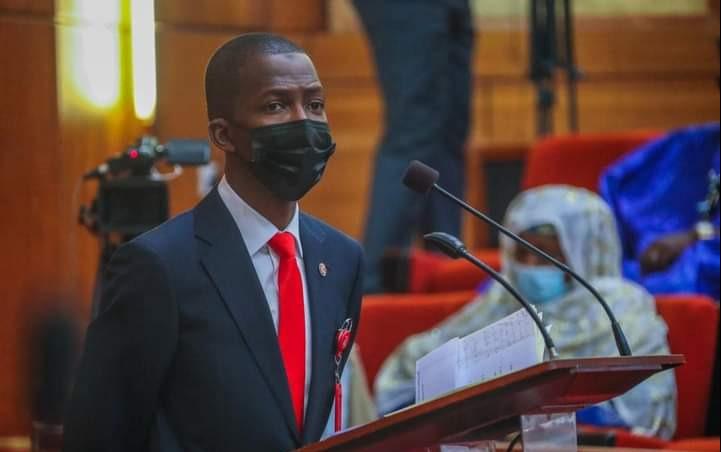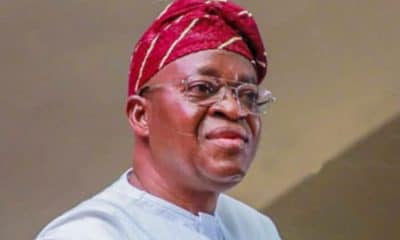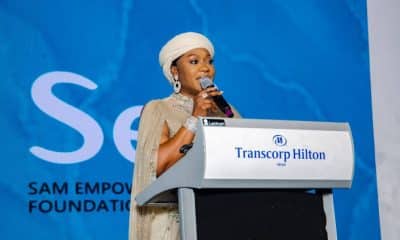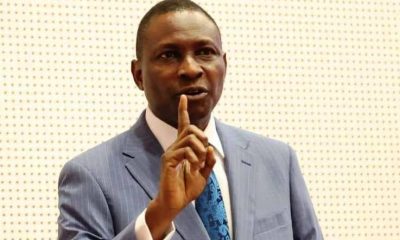Nigeria News
Court Convicts EFCC Chairman, Bawa For Contempt, Committed To Kuje Prison

The Chairman of the Economic and Financial Crimes Commission (EFCC), Abdulrasheed Bawa had been convicted by a High Court sitting in Federal Capital Territory (FCT) in Maitama for contempt.
Bawa was convicted by the court in relation to the commission’s failure to comply with an earlier order of the court.
Justice Chizoba Oji ruled that Bawa should be committed to Kuje prison for his disobedience.
Justice held that “the Chairman Economic and Financial Crimes Commission is in contempt of the orders of this honourable court made on November 21st 2018 directing the Economic and Financial Crimes Commission, Abuja to return to the applicant his Range Rover (Supercharge) and the sum of N40, 000,000.00 (Forty Million Naira).
“Having continued wilfully in disobedience to the order of this court, he should be committed to prison at Kuje Correctional Centre for his disobedience, and continued disobedience of the said order of court made on November 21st, 2018, until he purges himself of the contempt.
“The Inspector General of Police shall ensure that the order of this honourable court is executed forthwith.”
The presiding Judge rejected the arguments put forward by the lawyer to the EFCC, Francis Jirbo, to justify the action of the EFCC Chairman.
The ruling was delivered with respect to a motion on notice marked: FCT/HC/M/52/2021 filed by Air Vice Marshal (AVM) Rufus Adeniyi Ojuawo, a one-time Director of Operations at the Nigerian Air Force (NAF).
Ojuawo had, in the motion filed by his lawyer, R.N. Ojabo, in a suit marked: FCT/HC/CR/184/2016 complained that the EFCC declined to comply with the order, for the release of his seized property, made by the court in a judgment delivered on November 21, 2018.
The EFCC had arraigned Ojuawo on a two-count charge before Justice Muawiyah Baba Idris of the High Court of the FCT in Nyanya in 2016.
But, in a judgment on November 21, 2018, Justice Idris discharged and acquitted Ojuawo on the grounds that the prosecution failed to prove its case.
Idris held that for the charge to succeed, the prosecution must prove that the defendant corruptly accepted the gift; that he accepted or obtained the gift for himself or for any other person.
The judge added that the prosecution also ought to prove that the defendant accepted the gift in the course of, or for discharging his official duty and that the gift was an inducement or reward.
He held that the burden was on the prosecution to prove all ingredients of the charge preferred against the defendant beyond reasonable doubt as required under Section 131(1) of the Evidence Act, 2011.
Justice Idris said, “In conclusion, I hold that the prosecution has failed to prove the two counts charge of corrupt gratification under S17 (1)(a) and (c) of the Corrupt Practices and Other Related Offences Act, 2000.
“The defendant is discharged and acquitted on counts one and two of the charge.
“Consequently, the complainant (EFCC) is ordered to refund the defendant his N40,000,000 wrongly paid into ONSA recovery account and to return to the defendant his Range Rover Sport (Supercharged) forthwith.”










